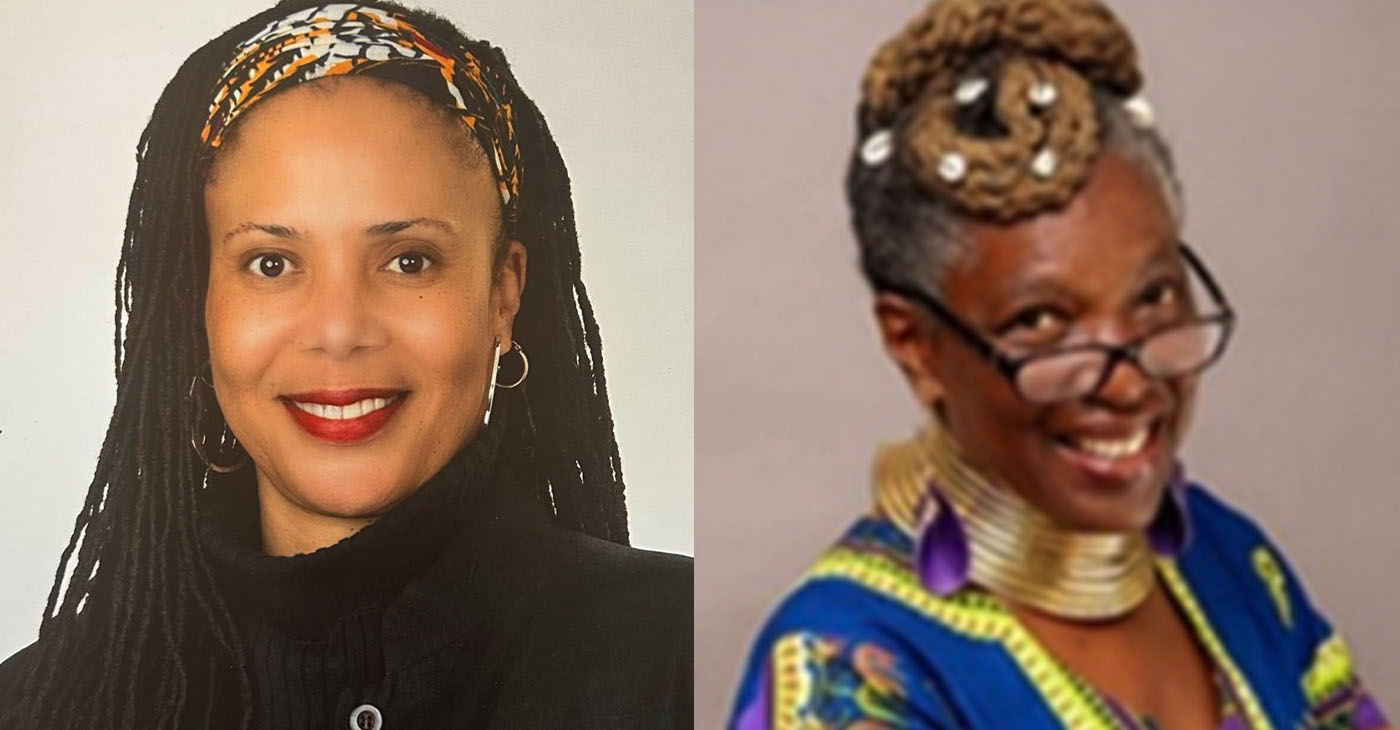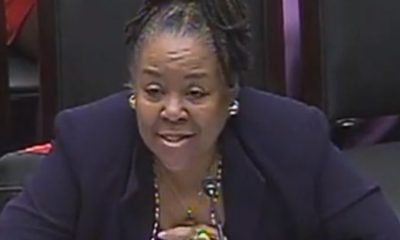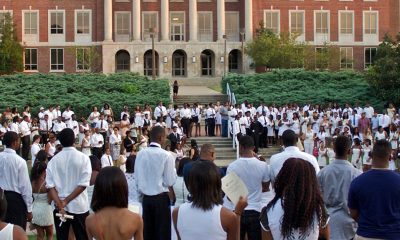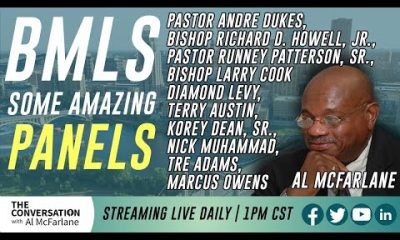Activism
COMMENTARY: Tapping into Our Timeless Kwanzaa Traditions to Support Black Wellness
While beliefs about the nature and purpose of Kwanzaa differ, its birth has, over the years, resulted in broad appreciation and widespread observance of the seven-day holiday.

By Zetha Nobles & Dr. Patricia Nunley
Kwanzaa, an annual celebration of Black heritage and spirituality, was created in 1966 by Dr. Maulana Karenga, during the Black Power Movement. The primary goal of the observance is to promote community wellbeing by fostering Black unity.
The word is derived from the Kiswahili phrase “matunda ya kwanza,” which means “first fruits of the harvest.” While beliefs about the nature and purpose of Kwanzaa differ, its birth has, over the years, resulted in broad appreciation and widespread observance of the seven-day holiday.
Five cultural practices define the observance of Kwanzaa:
- Gathering of family, friends and community
- Reverence for our elders, ancestors and creation
- Commemoration of the past
- Recommitment to the highest cultural ideals
- Celebration of the “Good of Life”
On Dec. 26, Kwanzaa observers say “Habari Gani?” which means “What’s the news?” This Kiswahili phrase invites us to acknowledge our loved ones and connect with our communities. The response to Habari Gani? corresponds with each of the seven days of Kwanzaa.
On the first day, Umoja (unity), observants light a black candle to call for unity within the family, community, and African nation.
On day two, Dec. 27, the “news” is Kujichagulia (self-determination) in defining, naming, creating and speaking for ourselves. A red candle is lit, reminding us to cultivate an African affirming mindset that equips us to engage in behaviors that illuminate and liberate our spirits, offering protection in an anti-Black society.
A green candle is lit on the third day, Dec.3, to symbolize achievement and Ujima (collective work & responsibility).
The “news” of Day 4 is Ujamaa (cooperative economics). The next red candle is lit to spark the flame of collective financial wellness and economic strength.
On the fifth day, the next green candle is lit to honor the principle of Nia (purpose) as each family/community member declares services she or he will offer the community.
The “news” about Kuumba (creativity) comes on the sixth day, New Year’s Eve. We light a red candle representing a call to do all we can to leave our community more beautiful and prosperous than we inherited it.
The last green candle is lit on the final day of Kwanzaa, Imani (Faith), coinciding with New Year’s Day. It is an invitation to believe in and respect our people, parents, teachers, leaders, and the righteousness and victory of our struggle. Imani is perhaps the most important principle because it is by faith that the seeds planted during the first six days of Kwanzaa will yield a harvest of physical, mental, and spiritual wellbeing throughout the upcoming year — and beyond.
Each Kwanzaa principle represents a pathway for attaining a more balanced state of mental wellbeing enhanced by a positive self-image and a sense of belonging.
Kwanzaa provides an opportunity to engage in activities that uplift positive models of personhood for our children and communities to emulate.
About the Authors
The authors are members of the Association of Black Psychologists (ABPsi) Bay Area Chapter, an organization that provides Post Newspaper readers with critical information about Black Mental Health monthly. Join us at our monthly meetings every third Saturday via Zoom. Contact us at: bayareaabpsi@gmail.com.
Activism
Oakland Post: Week of April 24 – 30, 2024
The printed Weekly Edition of the Oakland Post: Week of April 24 – 30, 2024

To enlarge your view of this issue, use the slider, magnifying glass icon or full page icon in the lower right corner of the browser window. ![]()
Activism
Oakland Post: Week of April 17 – 23, 2024
The printed Weekly Edition of the Oakland Post: Week of April 17 – 23, 2024

To enlarge your view of this issue, use the slider, magnifying glass icon or full page icon in the lower right corner of the browser window. ![]()
Activism
Oakland Schools Honor Fred Korematsu Day of Civil Liberties
Every Jan. 30, OUSD commemorates the legacy of Fred Korematsu, an Oakland native, a Castlemont High School graduate, and a national symbol of resistance, resilience, and justice. His defiant stand against racial injustice and his unwavering commitment to civil rights continue to inspire the local community and the nation. Tuesday was “Fred Korematsu Day of Civil Liberties and the Constitution” in the state of California and a growing number of states across the country.

By Post Staff
Every Jan. 30, OUSD commemorates the legacy of Fred Korematsu, an Oakland native, a Castlemont High School graduate, and a national symbol of resistance, resilience, and justice.
His defiant stand against racial injustice and his unwavering commitment to civil rights continue to inspire the local community and the nation. Tuesday was “Fred Korematsu Day of Civil Liberties and the Constitution” in the state of California and a growing number of states across the country.
One OUSD school is named in his honor: Fred T. Korematsu Discovery Academy (KDA) elementary in East Oakland.
Several years ago, founding KDA Principal Charles Wilson, in a video interview with anti-hate organization “Not In Our Town,” said, “We chose the name Fred Korematsu because we really felt like the attributes that he showed in his work are things that the children need to learn … that common people can stand up and make differences in a large number of people’s lives.”
Fred Korematsu was born in Oakland on Jan. 30, 1919. His parents ran a floral nursery business, and his upbringing in Oakland shaped his worldview. His belief in the importance of standing up for your rights and the rights of others, regardless of race or background, was the foundation for his activism against racial prejudice and for the rights of Japanese Americans during World War II.
At the start of the war, Korematsu was turned away from enlisting in the National Guard and the Coast Guard because of his race. He trained as a welder, working at the docks in Oakland, but was fired after the bombing of Pearl Harbor in 1941. Fear and prejudice led to federal Executive Order 9066, which forced more than 120,000 Japanese Americans out of their homes and neighborhoods and into remote internment camps.
The 23-year-old Korematsu resisted the order. He underwent cosmetic surgery and assumed a false identity, choosing freedom over unjust imprisonment. His later arrest and conviction sparked a legal battle that would challenge the foundation of civil liberties in America.
Korematsu’s fight culminated in the Supreme Court’s initial ruling against him in 1944. He spent years in a Utah internment camp with his family, followed by time living in Salt Lake City where he was dogged by racism.
In 1976, President Gerald Ford overturned Executive Order 9066. Seven years later, the 9th Circuit Court of Appeals in San Francisco vacated Korematsu’s conviction. He said in court, “I would like to see the government admit that they were wrong and do something about it so this will never happen again to any American citizen of any race, creed, or color.”
Korematsu’s dedication and determination established him as a national icon of civil rights and social justice. He advocated for justice with Rosa Parks. In 1998, President Bill Clinton gave him the Presidential Medal of Freedom saying, “In the long history of our country’s constant search for justice, some names of ordinary citizens stand for millions of souls … To that distinguished list, today we add the name of Fred Korematsu.”
After Sept. 11, 2001, Korematsu spoke out against hatred and discrimination, saying what happened to Japanese Americans should not happen to people of Middle Eastern descent.
Korematsu’s roots in Oakland and his education in OUSD are a source of great pride for the city, according to the school district. His most famous quote, which is on the Korematsu elementary school mural, is as relevant now as ever, “If you have the feeling that something is wrong, don’t be afraid to speak up.”
-

 Activism4 weeks ago
Activism4 weeks agoOakland Post: Week of March 27 – April 2, 2024
-

 #NNPA BlackPress4 weeks ago
#NNPA BlackPress4 weeks agoBeloved Actor and Activist Louis Cameron Gossett Jr. Dies at 87
-

 Community1 week ago
Community1 week agoFinancial Assistance Bill for Descendants of Enslaved Persons to Help Them Purchase, Own, or Maintain a Home
-

 Activism3 weeks ago
Activism3 weeks agoOakland Post: Week of April 3 – 6, 2024
-

 Business1 week ago
Business1 week agoV.P. Kamala Harris: Americans With Criminal Records Will Soon Be Eligible for SBA Loans
-

 Activism2 weeks ago
Activism2 weeks agoOakland Post: Week of April 10 – 16, 2024
-

 Community1 week ago
Community1 week agoAG Bonta Says Oakland School Leaders Should Comply with State Laws to Avoid ‘Disparate Harm’ When Closing or Merging Schools
-

 Community6 days ago
Community6 days agoOakland WNBA Player to be Inducted Into Hall of Fame

























































